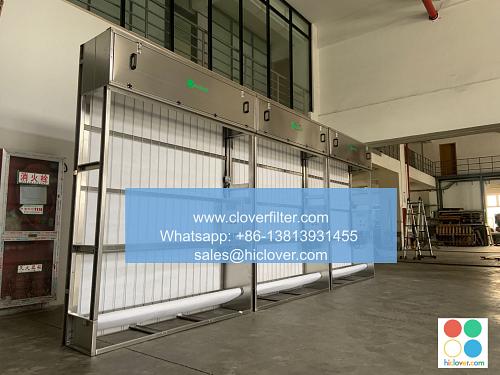Air Filter Comparisons: A Review of the Common Features to Look Out For

When it comes to choosing the right air filter for your home, office, or industrial space, there are several key factors to consider. With so many options available on the market, it can be overwhelming to decide which one is best for your specific needs. In this article, we will delve into the world of air filter comparisons, highlighting various application areas, and exploring the common features to look out for in HEPA filters, Activated Carbon filters, and UV Air Purifiers.
Understanding Air Filter Types and Their Applications
Air filters come in various shapes, sizes, and types, each designed to cater to specific needs and environments. For instance, residential air filters are designed for home use, while commercial air filters are suited for offices, restaurants, and other commercial spaces. Industrial air filters, on the other hand, are designed for large-scale industrial applications, such as manufacturing plants and warehouses. When choosing an air filter, it’s essential to consider the specific application area, including the size of the space, the type of pollutants present, and the desired level of air quality.
Key Features to Look Out For in Air Filters
When comparing air filters, there are several key features to look out for, including:
* Filtration Efficiency: The ability of the filter to capture pollutants and particulate matter, measured in terms of MERV ratings (Minimum Efficiency Reporting Value) or HEPA ratings (High Efficiency Particulate Air).
* Filter Life: The length of time the filter can be used before needing to be replaced, which can range from a few months to several years, depending on the type and quality of the filter.
* Air Flow: The rate at which the filter can process air, measured in terms of Cubic Feet per Minute (CFM) or Liters per Second (L/s).
* Noise Level: The amount of noise generated by the filter, which can be a consideration for residential or commercial applications where quiet operation is desired.
* Maintenance Requirements: The ease of maintenance and upkeep required for the filter, including filter replacement and cleaning.
Comparing HEPA Filters, Activated Carbon Filters, and UV Air Purifiers
Three popular types of air filters are HEPA filters, Activated Carbon filters, and UV Air Purifiers. Each has its unique strengths and weaknesses, and is suited for specific application areas. HEPA filters are known for their high filtration efficiency, capturing 99.97% of particles as small as 0.3 microns. Activated Carbon filters are effective against gas-phase pollutants, such as odors and volatile organic compounds (VOCs). UV Air Purifiers use ultraviolet light to neutralize bacteria, viruses, and other microorganisms.
Application Areas for Air Filters
Air filters have a wide range of application areas, including:
* Residential: Homes, apartments, and condominiums.
* Commercial: Offices, restaurants, hotels, and other commercial spaces.
* Industrial: Manufacturing plants, warehouses, and other large-scale industrial applications.
* Healthcare: Hospitals, clinics, and other healthcare facilities.
* Transportation: Cars, buses, trains, and other vehicles.
In conclusion, choosing the right air filter requires careful consideration of several key factors, including filtration efficiency, filter life, air flow, noise level, and maintenance requirements. By understanding the common features to look out for and highlighting various application areas, you can make an informed decision and select the best air filter for your specific needs, whether it’s for residential, commercial, or industrial use. It looks like you didn’t provide a prompt. Please go ahead and give me something to work with, and I’ll do my best to assist you!

